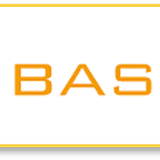Pemberdayaan Pusat Knowledge Sharing Untuk Meningkatkan Keahlian Investigasi Kecurangan Bagi Auditor Internal
DOI:
https://doi.org/10.24912/je.v28i1.1381Abstract
The role of identifying and investigating fraud for organizations and technological developments complicate organizational dynamics and require the competence and expertise of internal auditors to detect fraud within organizations. The purpose of this research is to obtain empirical evidence about the effect of auditors' risk assessment skills, understanding of industry characteristics and knowledge sharing on internal auditors' fraud investigation abilities. The research methodology in this study is quantitative, the population in this study is part of the internal audit of a leading consumer goods company in Indonesia using census techniques with a total of 60 people. Data collection was carried out using a questionnaire. The results of this study, all variables affect the ability of internal audit fraud investigations. This study implies the importance of enhancing the skills of internal auditors by strengthening internal discussions within organizations as “knowledge-sharing centers” to enhance the fraud investigation capabilities of internal auditors.
References
ACFE Indonesia Chapter. (2019). Survai Fraud Indonesia 2019. Acfe Indonesia Chapter, 76.
Benjamin, R. D., Dada, S. O., dan Adegbite, S. A. (2021). Effect Of Risk Assessment By Internal Auditor On Effectiveness Of Listed Companies In Nigeria. Academy of Accounting and Financial Studies Journal, 12(SpecialIssue 1), 1–18. https://doi.org/10.29121/ijrsm.v7.i11.2020.4.
Berraies, S., Lajili, R., dan Chtioui, R. (2020). Social Capital, Employees’ Well-Being And Knowledge Sharing: Does Enterprise Social Networks Use Matter? Case Of Tunisian Knowledge-Intensive Firms. Journal of Intellectual Capital, 21(6), 1153–1183. https://doi.org/10.1108/JIC-01-2020-0012.
Cris Kuntadi. (2017). Sikencur (Sistem Kendali Kecurangan): Menata Birokrasi Bebas Korupsi / Cris Kuntadi. Jakarta: Elex Media Komputindo.
Deloitte. (2020). Covid 19 and Fraud Risk : Managing And Responding In Times Of Crisis. 1–7. https://www2.deloitte.com/content/dam/Deloitte/za/Documents/risk/The_Fraud_Triangle_Final.pdf.
Demirović, L., Isaković-Kaplan, Š., dan Proho, M. (2021). Internal Audit Risk Assessment in the Function of Fraud Detection. Journal of Forensic Accounting Profession, 1(1), 35–49. https://doi.org/10.2478/jfap-2021-0003.
Dierynck, B., Kadous, K., dan Peters, C. P. H. (2019). Learning in the Auditing Profession: A Framework and Future Directions.
Latan, H., dan Ghozali, I. (2016). Partial Least Square konsep, metode dan aplikasi menggunakan WarpPLS 5.0. Semarang: Badan Penerbit Universitas Diponegoro.
Hazaea, S. A., Zhu, J., Khatib, S. F. A., dan Arshad, M. (2020). A Comparative Study of The Internal Audit System Between China and The Gulf Cooperation Council Countries. 1–7. https://doi.org/10.31098/bemss.v1i1.5.
Heider, F. (2013). The Psychology of Interpersonal Relations. The Psychology of Interpersonal Relations. https://doi.org/10.4324/9780203781159
Kolb, D. A., dan Kolb, A. Y. (2017). The Experiential Educator: Principles and Practices of Experiential Learning How You Learn Is How You Live View project Learning Sustainability View project. April, 565. https://www.researchgate.net/publication/316342276_The_Experiential_Educator_Principles_and_Practices_of_Experiential_Learning%0Ahttps://www.researchgate.net/publication/316342276.
Lenning, J., dan Gremyr, I. (2021). Unleashing The Potential Of Internal Audits: A Review And Research Agenda. Total Quality Management and Business Excellence, 0(0), 1–17. https://doi.org/10.1080/14783363.2021.1911635.
MacAilao, M. C. (2020). Raising the red flags: The concept and indicators of occupational fraud. Journal of Critical Reviews, 7(11), 26–29. https://doi.org/10.31838/jcr.07.11.06.
Mark Martinelli, Alfred E. Friedmand, J. L. (2020). The Impact of COVID-19 on Internal Audit. Journal of Adhesion Science and Technology, June, 2020.
Newman, W., January, J., dan Stephen, M. (2021). The Application of Analytical. 25(3), 1–10.
Putusan, D., Agung, M., Indonesia, R., Keadilan, D., Ketuhanan, B., Maha, Y., Rarahan, K., Rw, R. T., dan Cimacan, D. (2020).
Ratna Mappanyuki. (2016). Effects Spiritual Influence Of Auditors , Complexity Task , Ethics Auditor And Auditor Expertise On The Performance Auditor Withaccounting Information Systems With Moderating Variabel (Empirical Study On Bpkp Representative Office South Sulawesi). South East Asia Journal of Contemporary Bussines, Economics and Law, 9(1), 28–43.
Requirements, T., Welcome, W. E., dan Feedback, Y. (2020). Focus on the Auditor ’ s Risk Assessment. 1–4.
Sánchez-Aguayo, M., Urquiza-Aguiar, L., dan Estrada-Jiménez, J. (2021). Fraud detection using the fraud triangle theory and data mining techniques: A literature review. Computers, 10(10), 1–22. https://doi.org/10.3390/computers10100121.
Sugiyono. (2019). Metode Penelitian Kuantitatif, Kualitatif, dan RdanD. Alfabeta.
Sulistiyanto, F., dan Murtini, H. (2018). Determinants of Internal Auditor Performance through Knowledge Management with Organizational Culture as Moderating. AAJ: Accounting Analysis Journal, 7(3), 183–191. https://doi.org/10.15294/aaj.v7i3.22631.
The IIA. (2020). Covid-19 Impact on Internal Audit. Audit Executive Center The IIA, 38.
Downloads
Published
How to Cite
Issue
Section
License
Copyright (c) 2023 Jurnal Ekonomi

This work is licensed under a Creative Commons Attribution-NonCommercial-ShareAlike 4.0 International License.
This journal provides immediate open access to its content on the principle that making research freely available to the public supports a greater global exchange of knowledge.

This work is licensed under a Creative Commons Attribution-NonCommercial-ShareAlike 4.0 International License.


















